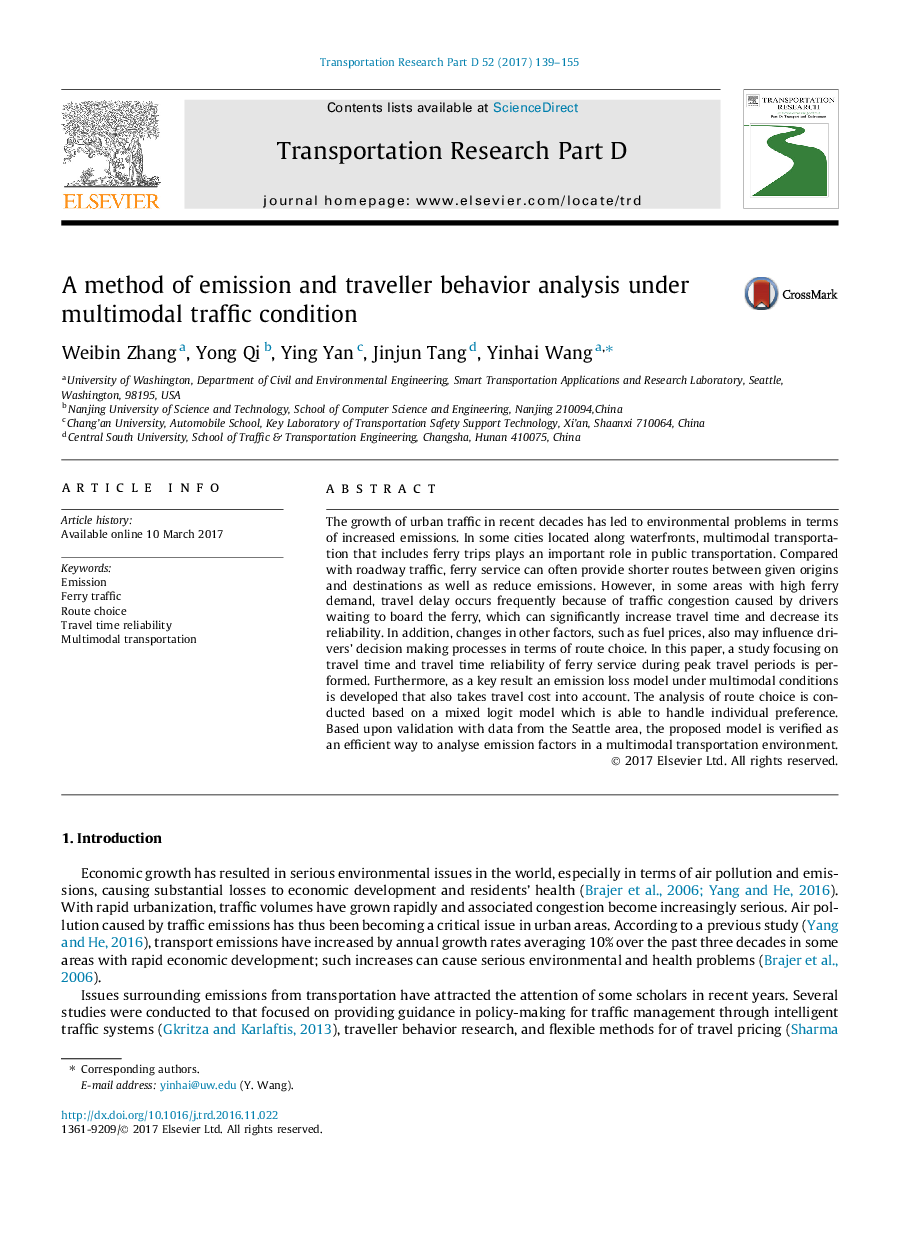| Article ID | Journal | Published Year | Pages | File Type |
|---|---|---|---|---|
| 5119257 | Transportation Research Part D: Transport and Environment | 2017 | 17 Pages |
â¢An emission loss model is proposed under multimodal conditions.â¢A study focusing on travel time reliability of ferry service during peak period is performed.â¢The analysis of route choice is conducted based on a mixed logit model.â¢Emission analysis based on the proposed model is applied in Seattle to validate the results.â¢The emission loss model can be used to optimize ferry service and reduce emissions.
The growth of urban traffic in recent decades has led to environmental problems in terms of increased emissions. In some cities located along waterfronts, multimodal transportation that includes ferry trips plays an important role in public transportation. Compared with roadway traffic, ferry service can often provide shorter routes between given origins and destinations as well as reduce emissions. However, in some areas with high ferry demand, travel delay occurs frequently because of traffic congestion caused by drivers waiting to board the ferry, which can significantly increase travel time and decrease its reliability. In addition, changes in other factors, such as fuel prices, also may influence drivers' decision making processes in terms of route choice. In this paper, a study focusing on travel time and travel time reliability of ferry service during peak travel periods is performed. Furthermore, as a key result an emission loss model under multimodal conditions is developed that also takes travel cost into account. The analysis of route choice is conducted based on a mixed logit model which is able to handle individual preference. Based upon validation with data from the Seattle area, the proposed model is verified as an efficient way to analyse emission factors in a multimodal transportation environment.
